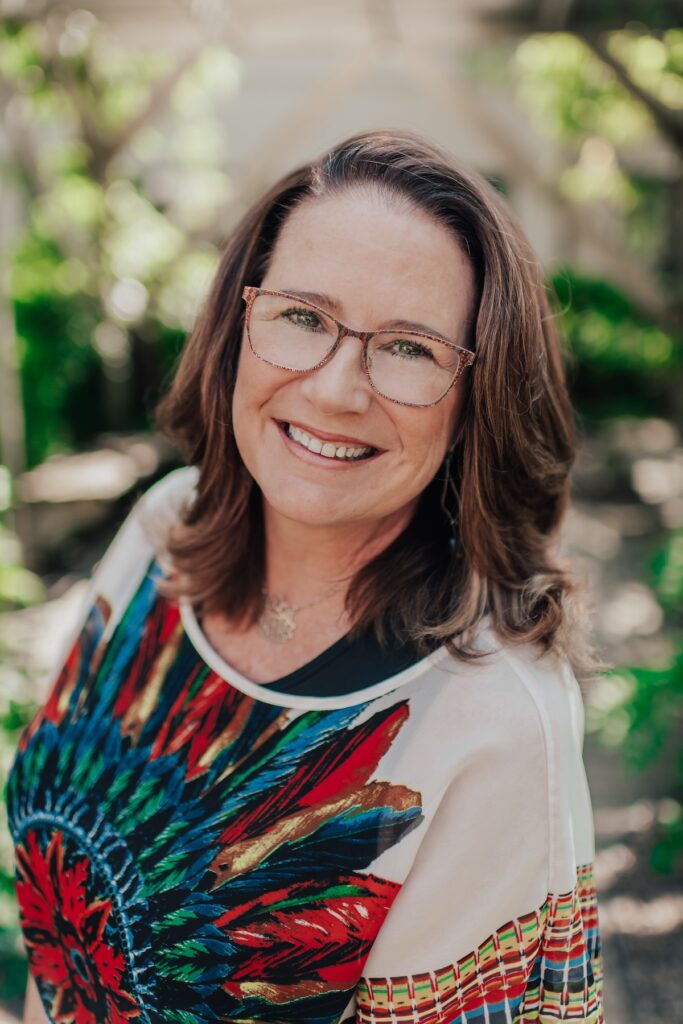By Patricia Knight Meyer
I wake from a bad night’s sleep, full of tossing and turning in sweaty sheets. Menopause? Maybe? Most women would ask their mother, but for adoptees like me, that’s rarely possible. At 54, girlfriends say it’s good I still have my periods. Late onset of menopause helps prevent Alzheimer’s they say, so maybe I’m lucky.
I’ve woken up early because I’m also lucky enough to have an award-winning journalist, a pioneer in adoption reform, and a first mother, Lorraine Dusky, author of Hole in My Heart and Birthmark, waiting for me to call her. She’s beta-reading pages of my forthcoming memoir about being sold as a baby on the black market and is ready to give feedback. During my reunion with my birth mother, I’d asked about menopause, and she told me she could tell me nothing, having had a hysterectomy before 40. So I’m almost tempted to ask Lorraine, but I don’t. Boundaries Patricia. Boundaries. Of course, asking my adoptive mother wasn’t possible, as she’d lost her uterus to the tubular pregnancy that had led her to me. And well, she died long before I’d had menopause brain to begin with.
My adoptive mom liked to tell me how maudlin and bizarre I acted my 13th summer, the month my period came. “You locked yourself in your room. Watched TV day and night. Refused to see friends, and sat at the kitchen counter sobbing and eating fried pies. One after the other.” She said she was resolved to take me to “a shrink,” but lucky for me the day before the appointment, I began to flow, and suddenly her daughter’s fall into madness began to make sense. If the going out is anything like the going in, I might be in for something.
What I do recall about that summer was being upset that my best friend took another friend to Europe, not me. Thank God we didn’t have social media back then. I can imagine how hard it would have been to watch them in their parachute pants, spikey hair, and Ray-Bans swinging off the Eiffel Tower. I also recall the summer of ‘83 being the summer I learned my adoptive parents didn’t know my birthday and had no birth certificate for me either. Unluckily, the attorney they used had decided to extort them out of $30,000 in exchange for getting to keep me, their paperless baby. How lucky for me they didn’t call the police and get me taken away, I remember thinking. In retrospect, even if I’d been invited to Europe, I couldn’t have gone. No birth certificate equals no passport, of course.
I end my call with Lorraine, which luckily goes well, by sharing that I am headed off to make the 1.5-hour drive from my birth father’s ranch in the Texas Hill Country to meet the couple renovating the 1952 Spartan trailer I was conceived in. Luckily, the trailer was still there the day I met my birth father, and the passion project of restoring her is now in full swing. Even on his deathbed, Pop lectured me, “Don’t drop the ball. She’s our legacy.” I agree. Today he’d be down-right proud of the plans I have in place for her. She’s going to be home to a non-profit adoptee creative writing residency.
Pulling down his dusty drive. I never forget how lucky I am to have found him. Yes, I was one of the few lucky adoptees to reunite and have not just a good, but a great, reunion.
As I head off for the long trip into town, I pull up sociologist Gretchen Sisson’s new book Relinquished: The Politics of Adoption and the Privilege of American Motherhood on Audible. A 20-year study of birth mothers and analysis of the outcomes of their open adoptions, the book gets me thinking about my close call with becoming one of the statistics between the book’s covers. Pregnant at 18, I wonder if mine was not a subconscious attempt to stand in my own birth mother’s shoes, to right the wrong, to better understand her choice somehow. Would I make the same decision? I found out I would not. Back then, in 1989, I thought it was all a matter of conviction. I would never abandon my baby. No one could ever force my hand.
But even decades later, I still asked myself, had I been selfish to make my child grow up in a single-parent home, on food stamps? Sure, I went to college, but my six-year-old daughter came home to an empty house and stayed with the neighbors at night while I swung around a pole to pay for my sins, for being dumb enough to get pregnant, smart enough to get into the University of Texas, and nowhere self-sufficient enough to afford it. Even with the Pell Grant, we went hungry. What life could she have had if not with me? I’d asked back when I was still in “the adoptee fog” of things.
Had I been able to see all those hard times coming, would I have made the same choice? At the time, my 32-year-old boss/Baby Daddy said he’d help me, and my adoptive parents were thrilled to have another baby to help raise. My father hadn’t died yet, and it was their support that had made it seem possible to keep her. But the adoptee in me was blind to the holes in the precarious net I was so sure would catch me. I just knew nobody was going to take away my baby. Lucky for me, nobody wanted to.
If you ask me today, I would not change a thing. But the me then, had I known what lay ahead, I would have been shaking in my boots.
I pull into the workshop of the master woodworker who’s working on the trailer. He and his adoptee wife have an adopted son. And it was this lucky synchronicity that swayed them to assist this hapless middle-aged lady in turning my tin can conception time capsule into what I hope will be an adoptee’s legacy. I am happy to see she’s coming along fine, and I head across town to talk to a guy about a shed. Actually, a large metal structure meant to canopy the trailer. Protect her from the elements.
As we sit down to bargain, I think, hey, why not throw in the adoption reunion story? It’s guaranteed to bring a smile, and sometimes even a discount. So, when I do go with the whole “I was conceived in a tin can” story, usually like magic, the person on the other end offers their own. This cowboy? Well, his wife had herself a good ole’ DNA surprise. By God, her daddy just wasn’t her daddy after all. And then she found him. And well, it got nasty. So unfortunate, I sigh, feeling for the woman.
“Well,” the man chirps. “Like I said to her, and I’ll say to you. Lucky you weren’t aborted.”
“Yeah, there’s that,” I say, tightening the let’s make a deal smile on my face.
“I mean, I’ll go straight up an’ to tell you I’m a pro-lifer. I mean that fetus. It’s you. It’s my wife.”
“It’s complicated,” I say.
“It’s a life,” he adds matter-of-factly.
“You know what I think,” I counter. “I think if we are bringing all these babies into the world, we need to make sure we do all we can as a society to help those mothers keep their babies. And the dads too for that matter. That’s what I’m for.”
“Well, good luck with that,” he says, eyebrow raised.
When I’m in Texas, I never forget I’m in Texas. And despite the talk across the aisle, the desk I mean, he’s a friendly enough man, and I still hope we can make a deal. I ask for a quote, and I watch him ping, ping, ping, all the costs into a 1980s-style adding machine. I watch the paper roll off in one long untorn spiral to the floor, and I’m reminded of the old-school days, ways, and mindsets my adoptee community is up against.
I shake the man’s hand and let go, feeling lucky to have sociologists like Gretchen Sisson and journalist Gabrielle Glaser (author of American Baby), leading the way for first mothers and adoptees like me. If this guy’s buddies in Washington won’t listen to us, maybe one day they will listen to experts like Sisson and Glaser.
He pushes me a very nice number across the desk. I smile, accept the deal, and appreciate his help in bringing this adoptee’s dream of creating a space to support our community that much closer to reality. How lucky I am.

Patricia Knight Meyer grew up as an undocumented, never legally adopted black-market baby, sold to a dysfunctional couple already denied by the system. Her decades-long search led to a reunion with both her first parents over a decade ago. Since that time, she’s been active in the adoptee community, supporting adoption reform, and speaking and blogging on adoption and reunion. She is currently seeking representation for her memoir and is involved in both adoption and writing communities. She writes and speaks frequently at adoption conferences, and appears on adoption-centered podcasts and blogs on her website. Her reunion video with her first father has 280,000 YouTube views. To learn more about the Spartan Trailer, home of the adoptee writing residency project, follow her Trailer Project. Look for her on Facebook, Twitter, and TikTok @myadoptedlife and in Instagram at @patriciaknightmeyer and @somebodys_baby




